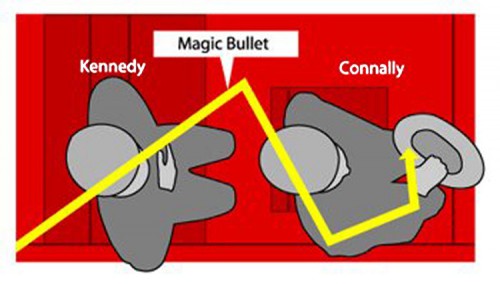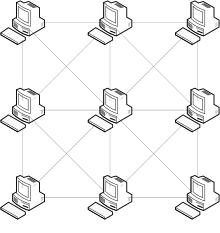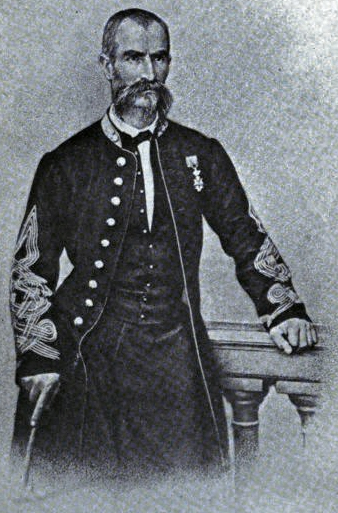
[As requested by Adam Elkus]
The design of American strategy falls between two extremes: the Magic Bullet Strategy and the Strategy of the Headless Chicken. The Magic Bullet Strategy runs something like this:
Picture an Afghan village in a remote valley of the Hindu Kush. A majority of villagers are indifferent towards terrorism aimed at kittens. They support or oppose anti-kitten terrorism depending upon which way the wind is blowing. A minority of villagers favor anti-kitten jihad in principle but feel no immediate need to seek out kittens to destroy. A minority of the minority is adamantly anti-kitten and wishes to create a swath of territory from Spain to Indonesia that is 100% kittenfrei. This group of extreme kitten haters has recently been joined by kitten haters from outside the valley, some of whom are farangi. They’ve brought enough lawyers, guns, and money to shift the indifferent majority towards supporting anti-kitten terrorism.
What to do?
CALL KENNANBOT!!!
KennanBot is on call 24/7/365. Its brand of quiet yet firm diplomacy never sleeps. Empowered by its own unified line-item budget authority and armed with full bureaucratic buy in from all relevant Cabinet agencies, KennanBot sallies forth from Foggy Bottom on rocket powered wingtips. After detecting the telltale signs of a village shifting towards extremism via satellite intelligence, KennanBot launches at a moment’s notice, completely in sync with the president’s policy towards this one village.

After a transit time of 3.45 minutes, KennanBot arrives on scene. “I have come to open a dialogue!”, KennanBot announces to the village in perfect idiomatic Pathan. A crowd gathers. KennanBot scans the crowd, looking for the telltale markers that separate moderates from extremists, reconcilables from irreconcilables, and intentional terrorists from accidental guerrillas. It quickly detects traces of splattered kitten blood and kitten beating clubs hidden under thick beards.
The crowd grows tense.
Suddenly, KennanBot is attacked! RPGs and AK-47s open up on KennanBot. Unfortunately for them, KennanBot has a little secret: KennanBot may be perfectly reasonable but it knows how to constructively engage the other side when negotiations are particularly tense. Constructive engagement—WITH EXTREME PREJUDICE!!!
KennanBot executes a series of spectacular Matrix-like acrobatic maneuvers, quickly disabling the extremists by landing exactly in front of them and inserting a microscopically thin knife between the left and right hemispheres of their brains with surgical precision. When the dust settles, the extremists lie twitching, lobotomized, anesthetized, and separated from the rest of the population in a carefully arranged and alphabetized row.
The crowd is speechless.
KennanBot dramatically turns towards them. From its shoulders emerge a large set of speakers. The sounds of We are the World, sensitively translated into Pathan, drift across the tense scene. Tension immediately dissipates. The crowd is quickly calmed by the universally soothing sound of well-meaning American celebrities. With the extremists precisely isolated from the population, KennanBot negotiates a binding agreement with the local village elders, opens a clinic, builds a road, instills capitalist values, constructs a school for girls, implants the foundations for a just civil society, patrols the village, holds an election, kisses babies, opens a kitten shelter, and flies back to Washington, all within 24 hours. As he prepares to leave, the locals unfurl Old Glory, put their hands over their hearts, and burst into a spontaneous rendition of The Star Spangled Banner. KennanBot salutes them and takes off but loops back to do a dramatic flyby.
The crowd cheers.

Somewhere in the world, another child is crying.
Somewhere in the world, another kitten is threatened.
Somewhere in the world, another crisis demands “adroit and vigilant application of counter-force at a series of constantly shifting geographical and political points“.
The rallying cry is the same: One crisis. One KennanBot.
Meanwhile, the enemy of all kittens screams in rage deep in his underground lair and rubs his bald head in frustrated disbelief, “COWSES!!! FWOILED AGAIN!”
Monologuing ensues.
The Strategy of the Headless Chicken runs something like this:

The scene: Kings Mountain, South Carolina, October 7th, 1780.
Major Patrick Ferguson is standing next to Captain Abraham DePeyster.
Gunfire is heard in the background. Screaming crackers pour out of the woods, whooping like the savages they are.
DePeyster: These things are ominous—these are the damned yelling boys!
Ferguson: As expected.
DePeyster: As expected, sir? The ruffians have us surrounded!
Ferguson: That’s the wrong way to look at it Captain. The ruffians are swarming us.
DePeyster: Sir?

Ferguson: They are hitting us from all sides.
DePeyster: Isn’t that the same as being surrounded?
Ferguson: You might think that, Captain, but that would be an example of legacy thought.
DePeyster: Legacy thought, sir?
Ferguson: Yes. Legacy thought. If you are thinking in terms of traditional warfare, you miss the emerging realities of warfare. Warfare will take you by surprise.
DePeyster: Like being “swarmed” by rebels, sir?
Ferguson: Jolly good! Now you’re freeing your mind, Captain.
DePeyster: Should I have the men “swarm” the rebels, sir?
Ferguson: That will never do, Captain.
DePeyster: Sir?
Ferguson: That would merely postpone the inevitable.
DePeyster: Sir, I must confess that I don’t understand.
Ferguson: That’s perfectly understandable, Captain. You’re only now learning that your military experience has left your mind filled with legacy thought.
DePeyster: I apologize for my accumulation of military experience, sir. Please enlighten me further.
Ferguson: By Jove, that’s the spirit! You see, Captain, our men cannot defeat the rebels in this engagement. They are a full three generations of warfare behind the rebel forces.
DePeyster: Generations of warfare, sir?
Ferguson: Generations of warfare, Captain. Our men are only the first generation of warfare. They can only fight in line and column. I foresee that, in the future, armies will fight with giant cannon. That will be the second generation. They will be succeeded by the men who run particularly fast, fast enough to reach deep into the enemies rear by over 300 yards, perhaps aided by phlogiston powered carriages.
DePeyster: Phlogiston, sir?
Ferguson: Phlogiston, Captain. Phlogiston is what gives fire its power. It’s an energy field created by all burning things. It surrounds us and penetrates us. It binds the heavens together. It is the cutting edge of natural philosophy.
DePeyster: That’s interesting, sir, but I fail to see how that keeps us from routing this backwoods rabble.

Ferguson: Understandable, Captain, it is not an idea that is easily grasped in the midst of battle. Let me explain. This backwoods rabble represents the fourth generation of warfare. They exploit the printing press to depict the King and his ministers as foolish tyrants, portray our brave commanders like Lord Howe, Sir Henry, and Lord Cornwallis as mules, and libel our brave soldiers as brutish automata. This “printing press” mastery is something we can’t fight back against.
Make no mistake. Time is on the rebels’s side. They will melt like mist back into their forests and mountains after they strike, broadcast our powerlessness to the world, and further erode support for Lord North’s Government back in England. We might as well be fighting the wind.
DePeyster: That’s a very bleak view, sir. Why would you come across and fight in this country if you saw no hope for our cause?
Ferguson: Field work, Captain.
DePeyster: Field work, sir?
Ferguson: Field work, Captain. You colonials may not realize this, but we Scots are inventing the modern world even as we speak. We are using the insights of natural philosophy to better the lot of man. Our circle in Edinburgh has postulated that the future of human society is emergent order.
DePeyster: Emergent order, sir?
Ferguson: Picture, Captain, the affairs of man upon this mortal sphere. Tradition says that men are best commanded by their betters, who will guide them on the proper Christian path. Such a hierarchy, many of our best philosophers believed, was ordained by God. Professor Smith, who teaches moral philosophy at our University of Glasgow, has argued that God’s pattern is really rather different. Professor Smith argues that the actions of the masses, when directed by their self-interest, will spontaneously produce order of its own accord. The ’45 occurred when I was but a babe. Unfortunately, the emergent properties of our own contemporary Highlanders have been greatly reduced thanks to the tender ministering of the Duke of Cumberland. I had to come to the colonies and specifically here to the Carolina backcountry to find a people of sufficient barbarian vigor to complete my observations. You see, Captain, it is as if an invisible hand has guided these rebels here to swarm us. Their swarm is a manifestation of emergent order. It is really rather quite striking.
DePeyster: If I might make an observation, sir, your proclamation that you would, and I quote, “lay waste to their country with fire and sword” and your otherwise charming warning that the local Carolina militia should rally to your flag or they would be, and I take the liberty of quoting you again, sir, “pissed upon by a set of mongrels”, might have rather more to do with their presence here than any unseen body free-floating body part.
Ferguson: Indeed, Captain. Sometimes, in natural philosophy, you have to assist the invisible hand in order to achieve quality observations. Indeed, I took the liberty of arranging the situation so I could observe emergent order up close.
DePeyster: I’m sure the men appreciate the opportunity to share your observations of this “emergent order” up close.
Ferguson: Quite so. They are seeing the future.
DePeyster: The future, sir?
Ferguson: One day, Captain, all that we claim to fight for in this war, King, Country, Parliament, the rights of Englishmen, will wither away. What will be left behind will very much resemble the lives of these “Overmountain Men“. They live in a state of nature, beyond the reach of law. Their settlements are quite illegal under the King’s Law but they now live by their own law, on the frontier, relying on no one but themselves. They have weathered attacks by our men and the Indians. They have faced numerous hardships. Given all that, you could say that their communities have shown remarkable resilience.
DePeyster: You could say that, sir. I myself would say, sir, if you don’t mind me saying so, that a regiment of the King’s men, given a month among those ruffians, would crush the rebellion with one swift stroke, hang all their ring leaders, stamp out sedition, and bring the King’s Peace to these blackguards.
Ferguson: You might think so, Captain, but that would be yet more legacy thought on your part. You can’t defeat emergent order just by hanging a few traitors. They would merely interpret their fallen leaders as damage and route around them. It as if each rebel is a knot in a net and they are in touch with each other through each thread in the net. If you remove one knot, you will have a hole in the net but the entire structure would still not come undone. You could still catch fish in the net. It is as if the net is a swarm of bees and your executed leaders are merely a few bees that have been swatted. The swarm still surrounds you and you will still get stung.
DePeyster: Like the rebels gunning down our men, sir? They are, as you say, routing around us?
Ferguson: Quite so. If you will excuse me, Captain, I must see to my observations.
DePeyster: Be careful sir. These banditti seem to have a personal grudge against you.
Ferguson: Come now, Captain. What’s the worst they can do with me? Riddle me with bullets, urinate on my body, and bury me in shallow grave, far from my native Edinburgh, in an oxhide?
DePeyster: I suppose so, sir.
Ferguson: See to the men, Captain! Tally ho!!!
One ideal in the making of American strategy favors precisely targeted efforts tightly controlled by enlightened and sophisticated professionals free of the demands of an unenlightened and unsophisticated public. The other ideal prefers the democratic and unpolished efforts of mobsourcing, driven by the emergent initiative of the Peopleâ„¢ rather than a hidebound and unresponsive elite. The clashes between these two ideals are, needless to say, extreme. Unfortunately for partisans of both extremes, the truth lies somewhere in the hazy spaces in between.
American strategy making has been driven by the dynamic interplay of Magic Bullet with Headless Chicken. Master Sun anticipated this aspect of the American stumble towards greater strategic truth: strategy must combine orthodox and unorthodox, Headless Chicken with Magic Bullet:

What enables an army to withstand the enemy’s attack and not be defeated are unorthodox and orthodox maneuvers. The army will be like throwing a stone against an egg; it is a matter of weakness and strength.
Generally, in battle, use the orthodox to engage the enemy and the unorthodox to gain victory. Those skilled at unorthodox maneuvers are as endless as the heavens and earth, and as inexhaustible as the rivers and seas.
Like the sun and the moon, they set and rise again.
Like the four seasons, they pass and return again.
There are no more than five musical notes, yet the variations in the five notes cannot all be heard.
There are no more than five basic colors, yet the variations in the five colors cannot all be seen.
There are no more than five basic flavors, yet the variations in the five flavors cannot all be tasted.
In battle, there are no more than two types of attacks:
Unorthodox and orthodox, yet the variations of the unorthodox and orthodox cannot all be comprehended.
The unorthodox and the orthodox produce each other, like an endless circle.
Who can comprehend them?
— Sun Tzu’s Art of War
, translated by Ralph Sawyer

The orthodox and the unorthodox faces of American strategy emerge spontaneously from the myriad, usually uncoordinated activities of the American people. However, some elements of this emergent strategic order dominate the others. The reason is simple: to butcher George Orwell, all order is emergent but some order is more emergent than others. In this age of tumult, before the onset of the intelligent killer robots that will destroy us all, emergent order comes from people. Butchering Orwell again, all men are created equal, but some men are created more equal than others. Human luck and talent follow a Pareto distribution: the luck and talent of a few will produce an impact disproportionately larger than the luck and talent of the many.
The Internet is sometimes portrayed as a perfect mesh network where “each node in the network may act as an independent router”. Routing directs a packet from one node on a network to another. A perfect mesh network would be composed of perfectly equal nodes where each passed network traffic to others:

However, the Internet is not a perfect mesh network. The dictates of population density, geography, cost, business requirements, traffic flow, and other factors force some nodes to be more equal than others in packet routing. Core Internet routers, hooked to fiber optic connections, even have their own dedicated routing protocol for exchanging information about the large-scale networks to which they are attached. It is they which form the most crucial links of the Internet. Just a few routers handle a disproportionately large portion of the overall traffic on the Internet. The few route more than the many.

Understanding this is vital: networks are emerging as the predominant form of human organization in our time. However, as pro-kitten RAND analyst David Ronfeldt pointed out in his seminal work, networks are neither a new form of human organization nor will they become the only form of human organization. Networks have existed as long as humanity has existed. But the tribe, the institution, and then the market have been more predominant forms of human organization in the past than the network. But now it’s the human network’s time to shine, enabled by the power of data networks. But older forms of social organization must not be overlooked. Tribe and, even more so, institution follow what the evil Nazis called führerprinzip: “leadership principle”. In the context of networks, this means that network nodes tend to clump. Most nodes in a human network are followers or satellite nodes. They produce small scattered data points on their own that, when aggregated, are significant. But other, “supernodes” attract more nodes than others. These leaders can be individuals or tight-knit oligarchies but they all form nodes that are more equal than other nodes. In the network, the person is the platform and its organizational structures merely applications.

Having followed open source developments since 1996, I’ve observed that successful open source projects require a Benevolent Dictator For Life (BDFL) or a tight knit oligarchy of Core Developers. In the Python programming language community, that role is played by Guido van Rossum. Guido created Python over Christmas vacation 1989 and the world was changed forever. He released Python as “open source” before anyone had even coined the term and Python gradually acquired a network of dedicated contributors. After twenty years, the majority of the code base was not written by Guido himself: most of the code base has now been programmed by others. But the personality of the language and the community is, in many ways, a reflection and extension of Guido’s personality, forming a Greater Guido that spans the globe like a colossus. That may be because he attracted like-minded people with like-minded tastes.
It may merely be because Guido created the greatest programming language of all time.

John Boyd, in Patterns of Conflict, gave pride of place to two points:
- Create harmony on your own side and attract others with your harmonizing mechanism.
- Create disharmony on the other side and repel others with their disharmony.
Ancient Babylonian myth tells of Marduk, god of the city, who fought and slew the many-headed Tiamat at the beginning of time. From Tiamat’s remains, Marduk created the Tigris, Euphrates, and the soil of Mesopotamia, the raw material of the original quagmire. This myth represented the victory of divine order over primordial chaos, the Chaoskampf. In the spirit of this mythos, Boyd emphasized the nurture of emergent order on your side and emergent disorder on the other side. The Strategy of the Headless Chicken, if taken to the point of maximum headlessness, will produce Boyd’s multiple competing centers of gravity all by its lonesome. Mass disharmony will ensue. However, because the Magic Bullet Strategy relies on the magical power of said magic bullet, if the bullet turns out to be less than magical, overall harmony will be extremely fragile and prone to emergent disorder.

A network requires asabiya, that almost mystical force of network cohesion and harmony that makes the members of a group unite to fight the far enemy instead of dividing to fight the near enemy. While asabiya is sometimes personified by a particular individual and their qualities, true asabiya transcends the one and distributes itself across the many. But individual humans remain asabiya’s greatest ally and most dangerous enemy. It’s appropriate to view the network immediately around particularly potent individuals as webs rather than networks. Like its namesake spider web, an individual’s web places them in the center of a network. Like the spider, the web allows a supernode to detect fluctuations in asabiya density before it directly encounters the source of the disturbance. The web also amplifies a supernode’s reach, radiating its localized asabiya through its web into the greater network, disrupting or strengthening broader network asabiya as it might.

Asabiya separates an army from a mob. Ardant duPicq observed that most of the casualties inflicted in battle up to his time happened when one side’s cohesion was smashed. The enemy could then run down the disorganized stragglers as they fled the battlefield. The loss of asabiya proves fatal. Asabiya is the force that allows a Headless Chicken to run around without its head. The Romans, for example, lacked the magical spark of the Macedonian armies of Alexander and Pyrrhus. Parmenio suggested to Alexander after the Battle of Issus that he should accept Darius III’s offer of an alliance, the hand of his daughter in marriage, and all Asia Minor, reputedly saying “If I were Alexander, I would accept the terms.” “So would I, if I were Parmenio.”, Alexander replied. If Alexander had been killed at Granicus, Parmenio would have retreated back into Europe. It took that special insanity of Alexander to take the arms of Macedon all the way to the Hyphasis. In contrast, the Roman armies of the Old Republic relied on asabiya. They could be commanded by a mediocrity and yet pull out a victory. They could suffer a catastrophic defeat like Cannae and still bounce back. They were robust against failure. In fact, the Magic Bullet was anathema to the Roman. The occasional genius who popped up, burning brightly in the firmament, the Scipio, the Marius, was pulled down by an Elder Cato or some other old senatorial blood.

Asabiya provides the anvil, the orthodox, the foundation of a group’s ability to project raw, mindless mass and persist across time. It is what makes good followers practice good followership. Mass provides a margin of safety. It provides robustness. But it is not enough. For investing, Nassim Nicholas Taleb advocated a barbell strategy: 90-95% in “ultra-safe” investments like Treasury Bills and 5-10% in something crazy that can produce disproportionately positive (or negative) returns. Strategy must draw on the same principle: 90-95% orthodox for engaging the enemy and 5-10% unorthodox for seizing the victory. The Headless Chicken must be equipped with the Magic Bullet. But its important not to overdo the unorthodox. Too much emphasis on unorthodox finesse means a heavy reliance on good intelligence and unusual insight from leaders. America has generally been bad at intelligence gathering and unusual insight is an unusual trait among American leaders. This means that a reliance on mass, whether through manpower or firepower, is usually a safer approach with American strategic efforts than precision or subtlety. Requiring precision or subtlety from the American system is asking too much: war must be made safe for mediocrity.
Thomas Jefferson had the basic theme right:
Uncertain as we must ever be of the particular point in our circumference where an enemy may choose to invade us, the only force which can be ready at every point and competent to oppose them, is the body of neighboring citizens…On these, collected from the parts most convenient, in numbers proportioned to the invading foe, it is best to rely, not only to meet the first attack, but if it threatens to be permanent, to maintain the defence until regulars may be engaged to relieve them.
Just as other governmental initiatives have sapped the self-organizing instincts of American communities in favor of reliance on centralized bureaucracy, the American all volunteer professional military of modern times has sapped the instinct for Americans to organize in their own defense. Having professionals as a supplement, as leavening, trainers, and consultants, for citizen defense is necessary. But encouraging a culture of waiting around for the professionals to show up and save the day is profoundly alien to past American experience. It creates two classes, the protectors and the protected, and violates asabiya. A people domesticated by benevolent professionals and deprived of the necessity spur of self-protection will quickly cease to be a self-governing people. Universal service at least in a state militia is a necessary element of American citizenship, as envisioned by the Militia Act of 1792. Every free male citizen was to receive military training from their state:
That each and every free able-bodied white male citizen of the respective States, resident therein, who is or shall be of age of eighteen years, and under the age of forty-five years (except as is herein after excepted) shall severally and respectively be enrolled in the militia, by the Captain or Commanding Officer of the company, within whose bounds such citizen shall reside, and that within twelve months after the passing of this Act. And it shall at all time hereafter be the duty of every such Captain or Commanding Officer of a company, to enroll every such citizen as aforesaid, and also those who shall, from time to time, arrive at the age of 18 years, or being at the age of 18 years, and under the age of 45 years (except as before excepted) shall come to reside within his bounds; and shall without delay notify such citizen of the said enrollment, by the proper non-commissioned Officer of the company, by whom such notice may be proved. That every citizen, so enrolled and notified, shall, within six months thereafter, provide himself with a good musket or firelock, a sufficient bayonet and belt, two spare flints, and a knapsack, a pouch, with a box therein, to contain not less than twenty four cartridges, suited to the bore of his musket or firelock, each cartridge to contain a proper quantity of powder and ball; or with a good rifle, knapsack, shot-pouch, and powder-horn, twenty balls suited to the bore of his rifle, and a quarter of a pound of powder; and shall appear so armed, accoutred and provided, when called out to exercise or into service, except, that when called out on company days to exercise only, he may appear without a knapsack…after five years from the passing of this Act, all muskets from arming the militia as is herein required, shall be of bores sufficient for balls of the eighteenth part of a pound…
The words of the prophets of American strategy were written on the fields of the Cow Pens. Every American strategic problem and solution will be found in the course of the fighting on January 17th, 1780. But American strategy, be it Headless Chicken or Magic Bullet, can only be successful after the answers to two questions are answered:
- What is America?
- What is America for?

inserting a microscopically thin knife between the left and right hemispheres of their brains with surgical precision.
Unfortunately for the theory, that is not what is called lobotomy. It is interesting, though. Cutting the corpus callosum, which has been done in a number of cases of severe epilepsy, especially post-traumatic, separates the left and right brain so they do not communicate. A number of very interesting experiments have been done with the small number of people who have had this done.
The eyes are not the same as visual fields. The right visual field is the image of the right half of the world as we look at it. In the right eye, it is a nasal half of the retina. In the left eye, it is the lateral half of the retina. These connections cross behind the eye in the optic chiasm. The right visual field goes to the left occipital cortex and vice versa. In subjects with a divided corpus callosum, you can communicate with the two halves of the brain even though they cannot communicate with reach other. You can do it with special glasses that divide the two visual fields so the left brain sees a different image than the right brain.
In such a preparation, you can tell the right side to do one thing and the left to do another. The mind resides in the dominant hemisphere with consciousness. The right handed person is aware of what his right hand does but not what his left does. If you tell him, using the special glasses, to push a button with his right hand, he will do so so long as the instruction goers to the left brain via the right visual field. If you tell the opposite brain to do so, it will not. It cannot communicate with the right hand; only the left. In some circumstances, where the order is quite urgent, the left hand will, without conscious thought, take the right hand and push the button with it.
Sorry to digress but neuroscience seemed to need a brief comment.
I did not know that a man from Holland, who indeed is a kind of dictator, could have “Serb Dictator Hair.” There must be some mysterious connection between the people of Holland and the people of Serbia.